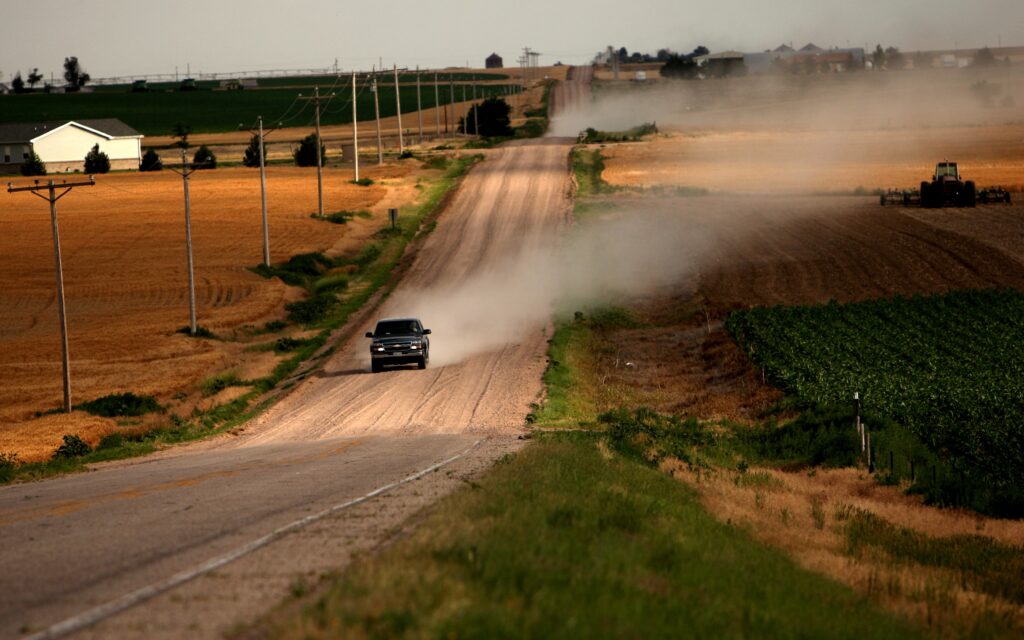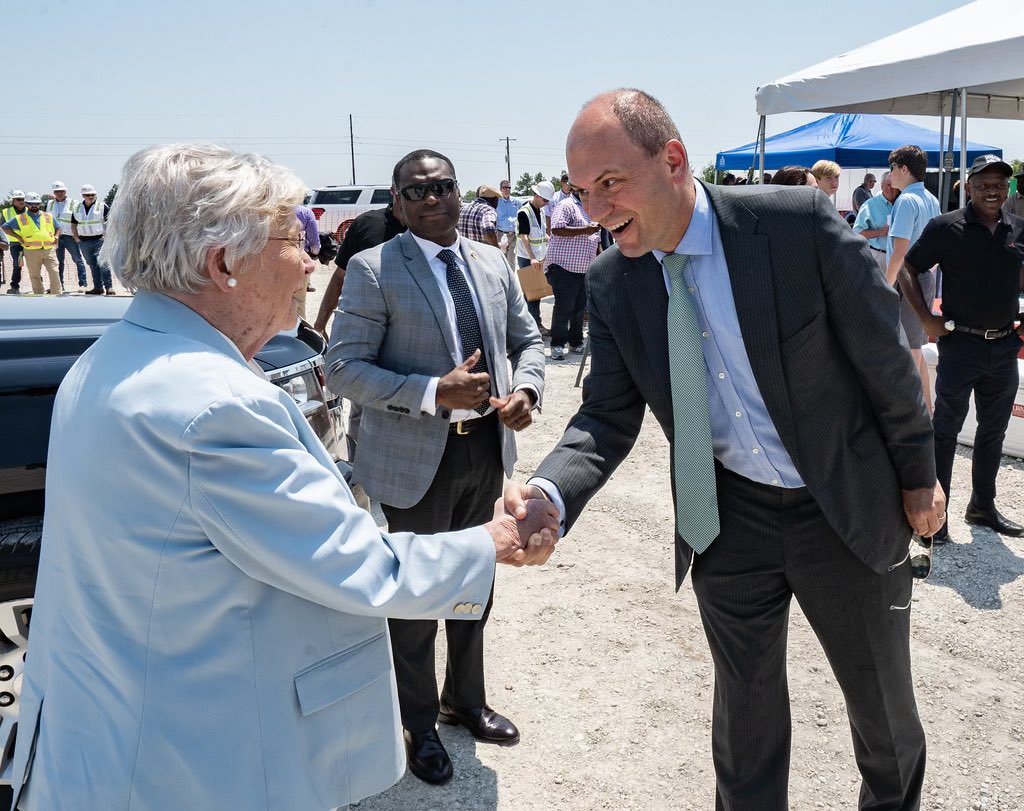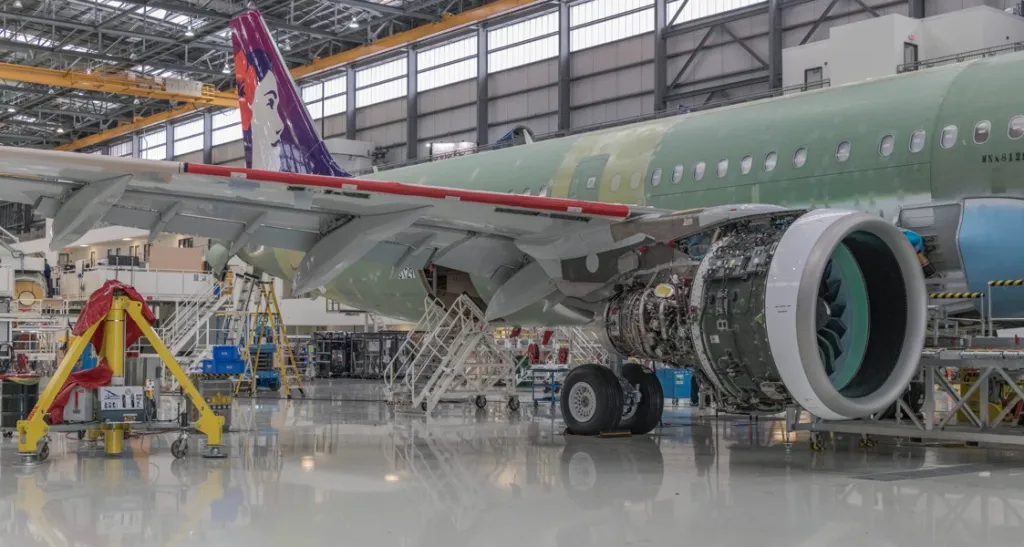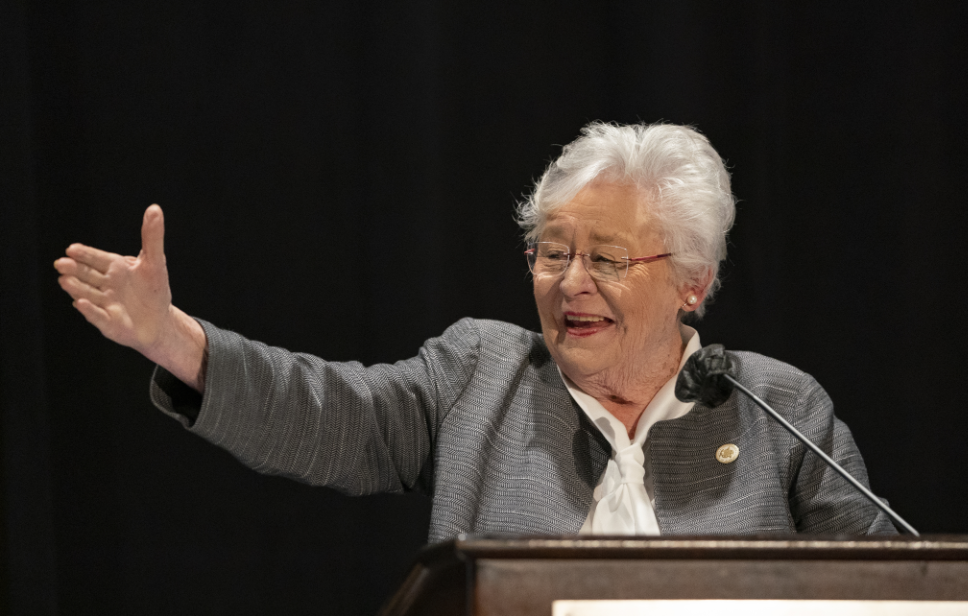Greg Canfield is optimistic about rural Alabama’s long-term economic growth

On Wednesday, Alabama Department of Commerce Secretary Greg Canfield said, “Rural Alabama looks set for long-term economic growth.” Canfield is set to leave state government at the end of the month. “When I reflect on what we’ve achieved during my tenure at the Alabama Department of Commerce, one of the things I always underline is an increased emphasis on rural development,” Canfield said. “This began with the new strategies we adopted in Accelerate Alabama 2.0, the updated version of our strategic economic development plan. We took a step further in 2019 when Commerce formed its first Office of Rural Development, led by Brenda Tuck.” “Since then, we’ve been on a roll. In the past three-plus years, the economic development team working in Alabama’s rural counties has secured over $4 billion in new capital investment through projects projected to create more than 5,400 jobs,” Canfield continued. “No wonder Governor Kay Ivey hailed this success as “nothing short of remarkable” at a recent summit for the state’s rural developers, organized by Tuck.” “But don’t get caught up in the big numbers related to the rural projects since 2020,” Canfield said. “What’s really important is that these projects have improved communities and changed countless lives for the better in a lasting way. That’s what economic development is all about. And I’m especially proud of what we’ve accomplished in rural Alabama.” Alabama grew between the 2010 and 2020 Censuses, but of the 67 counties, 55 were flat or in decline. Most of the population growth in the state during that period was in Baldwin, Madison, Lee, Limestone, Shelby, Lee, Tuscaloosa, Autauga, and St. Clair Counties, continuing a long-term trend that dates back to at least the Great Depression of children coming of age in rural Alabama and then going on to build their lives elsewhere, whether that is in Alabama or another state. Some counties in Alabama have smaller populations today than they did in 1900. As Alabama has transitioned from agriculture to forestry, there are far fewer farms, and those timber plantations and hunting clubs don’t require the workers that the farms and ranches once did. Even where farm families have held on, the farms have gotten bigger, more mechanized, and support fewer workers than they did in generations past. This has left many small towns across the state in perpetual decline with an aging population whose grandchildren are growing up elsewhere. Gov. Ivey, who grew up on a cattle farm in rural Wilcox County, has made reversing the decline in rural Alabama a goal of her administration, emphasizing economic development in rural areas, an expansion of rural broadband, school improvement, and infrastructure upgrades, including roads, bridges, water systems, and wastewater treatment. To connect with the author of this story or to comment, email brandonmreporter@gmail.com.
Wood pellet factory has groundbreaking in Epes

Enviva Inc. held a ceremonial groundbreaking ceremony at the site of its new wood pellet-making factory in Epes, Alabama – in Sumter County. Enviva is the world’s leading producer of sustainably sourced woody biomass. Alabama Governor Kay Ivey, as well as other state and local government officials, joined Enviva’s corporate leadership for the groundbreaking. “The fact that the world’s largest wood pellet producer is building its largest production facility to date here, in Sweet Home Alabama, is yet another testament to our nation-leading business climate and world-class workforce,” said Gov. Ivey. “Enviva’s significant commitment at the Port of Epes will undoubtedly breathe life into a community and region eager for new, long-term opportunities. It truly is an exciting day for West Alabama, and I sincerely appreciate Enviva’s decision to plant roots here in our great state.” Thomas Meth is the President and CEO of Enviva. “It is an honor to be here in Sumter County with Governor Ivey and local officials to celebrate this momentous occasion of breaking ground on a fully contracted, state-of-the-art wood pellet production facility in West Alabama,” said President Meth. “We are excited to grow with Alabama as we remain committed to being a long-term source of green jobs and green investment across the state. We have been humbled by the strong support we have received from the local community over the last few years, and we look forward to formally being a part of the community and to being a good neighbor for many years to come.” The Epes site will be the 11th factory for the company. A 12th factory is planned in Bond, Mississippi. Enviva has been actively involved in Sumter County since 2018. In 2020, Enviva acquired over 300 acres on the Tombigbee River in the Epes Industrial Park. There the company is building its largest wood pellet production plant. In July 2022, the company began construction of its fully contracted Epes plant, which will have a nameplate capacity of 1.1 million metric tons per year. Enviva hopes that the Epes plant will be operational by the middle of next year, with production fully ramped by 2025. Congresswoman Terri Sewell (D-AL07) said Enviva’s investment project represents great news for Sumter County. “It is imperative for the prosperity of Alabama that we continue to deliver more resources and opportunities directly to the people that need them most,” Rep. Sewell said. “I am thrilled to see Enviva is doing just that by providing even more jobs to our rural communities through this expansion.” “Team Sewell was in Sumter County for the @Enviva groundbreaking!” Sewell said on Twitter. “This expansion is set to create 300 jobs. Proud to see more economic development in our rural communities!” “I’m proud that Alabama is continuing to invest in our small towns and make our state the best place to work, live and raise a family,” Ivey said. “As some of you probably know, I’m a proud daughter of Alabama’s Blackbelt and was born and raised just two counties over in Camden. So, believe me when I say that projects like this are truly close to my heart. Getting them done and providing for the people of West Alabama is personal to me.” “It was great to be in Epes this afternoon to break ground on @Enviva’s 11th and largest wood pellet plant,” Gov. Ivey said on Twitter. “This is an exciting day for West Alabama, and I appreciate Enviva’s decision to plant roots in our great state!” Brenda Tuck is the Rural Development Manager for the Alabama Department of Commerce. “Thanks to its significant investment, Enviva’s project will create quality jobs for West Alabama’s citizens while also improving timber markets for local landowners and enhancing economic activity for the entire region,” Tuck said. Once operational, Enviva’s Alabama plant is expected to support approximately 350 direct and indirect jobs, including positions in industries such as logging and trucking. Enviva plans to invest, on average, $375 million for each newly constructed plant going forward, including the Epes plant. The facility will sustainably and responsibly source wood from areas within approximately 75 miles of the plant. Pellets produced at the Epes plant will be exported to international markets, mainly in Europe and Asia, and will help to fill international demand for secure sources of renewable energy. This is necessary as the world moves away from fossil fuels to produce electricity. During the ceremony, Enviva recognized the following organizations for their invaluable contribution in making the project possible and for, in turn, bringing economic development to Sumter County: MuniStrategies, LLC, PB Community Impact Fund, LLC, UB Community Development, LLC, National Impact Fund, LLC, Capital One – National Association, and United Bank. Enviva owns and operates ten plants with a combined production capacity of approximately 6.2 million metric tons per year in Virginia, North Carolina, South Carolina, Georgia, Florida, Mississippi, and now Alabama. To connect with the author of this story or to comment, email brandonmreporter@gmail.com.
Foreign investment accelerates with new growth projects in Alabama

With new growth projects underway in key industries such as automotive and aviation, foreign direct investment continues to be a powerful catalyst in Alabama’s economy, casting a wave of job creation and triggering positive ripple effects. Since 2018, foreign companies have launched investment projects valued at more than $13 billion across Alabama, generating nearly 17,000 job commitments, according to the Alabama Department of Commerce. While final figures aren’t tallied for 2022, foreign direct investment (FDI) projects topping $2.6 billion were announced and will bring at least 2,600 new jobs to the state, according to a preliminary estimate from the Department of Commerce. Those figures exceed the FDI totals for 2021 when $1.1 billion of new investment generated 1,700 job commitments. “The success of the companies operating in Alabama is a story that’s being told around the world, and that’s helped us recruit many important global companies to our state,” said Greg Canfield, secretary of the Alabama Department of Commerce. “Here at home, that’s meant much-needed new investment and lucrative jobs for communities across the state,” he said. Major FDI projects launched in 2022 include: After a $300 million investment, Hyundai is building the hybrid version of its Santa Fe SUV and the first electrified Genesis GV70 SUV at its Montgomery plant. (Hal Yeager / Governor’s Office) Global gateway Foreign investment has long been a major economic driver for Alabama. Select USA, a government initiative that facilitates foreign business investment across the nation, estimates that more than 120,000 jobs in Alabama are tied to FDI projects in industries, led by automotive, plastics, metals, and chemicals. Top sources for foreign investment in Alabama are Germany (23%), Japan (16%), and South Korea (13%), according to Select USA. Christina Stimpson, director of the Commerce Department’s Office of International Trade, said FDI accounts for a substantial share of the new and expanding industry activity in Alabama each year. Her office supports FDI attraction efforts to heighten awareness that Alabama represents a global gateway to the U.S. “Clearly, facilitating foreign investment is a huge priority for us as a state, and we’re fortunate to have a diverse base of industries, along with a highly skilled workforce, to attract and retain these commitments from global companies year after year,” Stimpson said. “We know that FDI adds vitality to local economies seeking strong industries and job-creation potential because we can point to many examples in Alabama where this has had a huge impact,” she said. Mercedes-Benz opened a battery factory on the automaker’s Bibb County campus a few months before starting production of electric vehicles in Alabama in 2022. (Hal Yeager / Governor’s Office) Rural spark Foreign direct investment has spurred economic growth in recent years in rural parts of the state. Between 2015 and 2021, Alabama’s 40 “targeted” counties attracted almost $1.9 billion in FDI through growth projects, with more than 4,200 job commitments, according to Alabama Department of Commerce data. This investment has primarily flowed from South Korea, Canada, Japan, and Germany. Brenda Tuck, Rural Development manager for the Alabama Department of Commerce, said rural Alabama locations such as Chambers County, Selma, and Fayette are among those that have seen job creation through foreign investment. The Scott G. Davis Industrial Park in rural Bibb County illustrates the power of FDI. The 564-acre park is home to a Mercedes-Benz EV battery plant and other operations, along with a factory run by auto supplier MöllerTech. Together, the German companies have invested more than $600 million in the park, creating 1,200 jobs. “The high level of FDI activity shows decision-makers around the world that rural Alabama is an ideal location for doing business, and the companies locating there often expand their operations because they are getting the critical support they need to be successful,” Tuck said. This story originally appeared on the Alabama Department of Commerce’s Made in Alabama website. Republished with the permission of The Alabama NewsCenter.
Kay Ivey announces plans to open aviation training academy in Selma

On Friday, Governor Kay Ivey announced that Resicum International LLC plans to open an aviation training academy at Craig Field in Selma. The company provides flight training and maintenance support to government, commercial, and general aviation customers. “I am proud to stand before all of y’all to announce Resicum International, a world-renowned woman and veteran-owned small business with a global reach will open an aviation training academy here at Craig Field!” Ivey announced at a public announcement event held in Selma. Resicum plans to invest $1.3 million, creating 70 jobs over three years at its new operational hub at the former Craig Field U.S. Air Force base in Dallas County. The new jobs will pay an average wage of $30 an hour. Resicum has signed a 10-year lease for a 50,000-square-foot hangar on the Craig Field flight line. Renovation work has already begun to prepare the historic facility for its new mission. “We are exceptionally pleased to invest in Craig Field and expand our company in Selma,” said Resicum CEO Jeanine Ziervogel. “The location is ideal for our company’s expansion, and we look forward to ongoing growth of our aviation operations in this storied place.” The Warrenton, Virginia-based company has made the decision to locate its aviation training academy at Craig Field, a facility where thousands of American and British pilots received flight instruction during World War II. “Craig Field has aviation training in its DNA, so it’s great to see Resicum establish a facility in such a historic location that will tap into this rich heritage while also solidifying the future for this Selma landmark,” Ivey said. “This project has significant potential, and I look forward to seeing how it unfolds.” Economic developer Dr. Nicole Jones told Alabama Today, “Resicum International‘s partnership with Craig Field will be an asset for Selma and Dallas County. Alabama has a history of leadership in aerospace and aviation. Not only will the training facility enhance Selma’s workforce, the redevelopment of the historic Craig Field will serve as a catalyst to bring other companies to the area.” Greg Canfield, Secretary of the Alabama Department of Commerce, praised the company. “Craig Field offers growing aviation companies a lot of advantages, particularly when it comes to the preparation of the next generation of aviation professionals,” said Secretary Canfield. “Resicum represents an ideal partner as Craig Field continues to capitalize on these possibilities.” Canfield explained that Craig Field’s long runway, large parking apron, and excellent hangar facility make it a perfect match for Resicum’s project. The groundbreaking of a new remote tower facility and Air Traffic Control Training Academy will further enhance the complex’s flight safety and training opportunities. The Selma & Dallas County Economic Development Authority coordinated meetings with representatives from state agencies, including AIDT, the state’s primary workforce development agency, to assist in the recruitment of the project. AIDT, a division of the Alabama Department of Commerce, will work with Resicum to develop a local workforce training and hiring program. “I am extremely happy that I had a part in bringing more jobs and economic development to Selma and Dallas County,” said EDA Executive Director Wayne Vardaman. “This is a quality company with a great reputation in the aviation community.” “Our company is growing our aviation footprint nationwide and globally, and we look forward to welcoming students from around the U.S. and the world who wish to begin or enhance their aviation careers,” said Robert Baird, Resicum’s chief of operations. Craig Field Airport & Industrial Authority Executive Director Jim Corrigan said that he expects Resicum’s operation to act as a catalyst for growth in the region. “We are extremely happy to help bring Resicum International to Craig Field,” said Corrigan. “Their credibility and growth potential will bring more jobs and economic prosperity to the Selma and Dallas County area.” “It is exciting to have Resicum International expanding into Dallas County and providing such incredible career opportunities to our citizens,” said Judge Jimmy Nunn, chairman of the Dallas County Commission. “I am so grateful for our local leadership making Dallas County such a great place to invest and do business. Thanks to everyone for a job well done.” “Once again, this is great news for Selma,” said Selma Mayor James Perkins. “Our logistics planning strategy starting with aviation is working even better than I predicted. Thank you, Resicum, for choosing Selma. Great job, Team Selma.” Brenda Tuck, Rural Development Manager for the Alabama Department of Commerce, stated, “Aerospace and aviation are key industries for Alabama’s economy, and the contributions of the state’s rural communities are vital to their success. Resicum made a great choice in selecting Selma because all the resources are in place to make this venture a success.” Resicum is a corporate partner for the U.S. Department of Defense’s Special Operations Command. To connect with the author of this story or to comment, email brandonmreporter@gmail.com.
Kay Ivey announces 84 Ecore International jobs in Ozark

Alabama Governor Kay Ivey announced Tuesday that Lancaster, Pennsylvania-based Ecore is making a $25.5 million investment in rural Dale County. The new state-of-the-art manufacturing facility will employ 84 workers in the city of Ozark with an average pay of $42,500 annually. Ecore specializes in transforming reclaimed materials into high-performance flooring and surface products. The privately held company is the largest converter of reclaimed rubber in North America, and its largest raw material is scrap truck tires. “Ecore International is a great addition for Alabama’s business community, and its decision to locate an advanced manufacturing and recycling facility in Dale County will have a major economic impact on the rural area,” stated Ivey. “This project in Ozark will bring good manufacturing jobs to the citizens there and spark new opportunities throughout the region.” Ecore is purchasing an existing building in Ozark. There the company will equip it to reclaim the rubber from used truck tires. The reclaimed rubber will be used to manufacture flooring and surfacing products. Art Dodge is the CEO of Ecore. Dodge said the company is pleased to be partnering with the city of Ozark, Dale County, and the State of Alabama to establish the world-class manufacturing and recycling facility. “Since its inception, Ecore has transformed over 2 billion pounds of rubber waste into surfaces that make people’s lives better,” Dodge said. “All Ecore manufacturing facilities are certified ‘Zero Waste,’ amplifying the company’s commitment to environmental stewardship. Ecore invests in more than its facilities — we invest in our people and in our communities because we believe that when our people and our communities prosper, we prosper.” Economic developer Dr. Nicole Jones told Alabama Today, “Ecore International has already demonstrated good stewardship. The company is purchasing an existing building to utilize for its Alabama facility, transforming used tire rubber into flooring and surfacing products, and creating jobs within the rural Ozark/Dale County community.” In 2021, the company upcycled over 100 million pounds of truck tires into manufacturing products, taking approximately 1 million truck tires from landfills or illegal dumps. “Ecore is a champion of sustainability, with a primary goal of creating products that improve lives and the environment,” said Alabama Commerce Secretary Greg Canfield. “Its new tire recycling and manufacturing facility in Dale County will help this impressive company extend its mission while also providing good-paying jobs for citizens there.” “Ecore’s manufacturing process produces commercial flooring for a variety of markets, including nursing homes, schools, fitness centers, hotels, and retailers,” Dr. Jones said. “The company ergonomically engineered its flooring products to support joints and impact. Ecore patented its TRU technology, which the company said provides more safety, sound absorption, enhanced force reduction, and energy restitution. We are thrilled about Ecore’s investment in Alabama, and their business model focused on sustainability, safety, and long-term relationships within the communities they have a presence within.” Ozark Mayor Mark Blankenship said that Ecore’s addition to the community will have a positive effect on Ozark and Dale County as a whole. “I want to thank the team at Ecore International for their confidence in Ozark and Dale County. We welcome the expansion of your company from Pennsylvania to Ozark, Alabama,” said Mayor Blankenship. “We look forward to a great partnership with Ecore International.” Dale County Commission Chairman Steve McKinnon said, “I am thrilled that Ecore is a company who will bring in the type of jobs that will attract people to move here and involve themselves in our community and our churches and schools. We want to thank the company for choosing to expand to Dale County and heartily welcome them.” Brenda Tuck is the Rural Development Manager for the Alabama Department of Commerce. Tuck said that Ecore’s recycling facility project in Dale County joins a list of innovative operations being launched in rural Alabama. Since 2020, projects valued at over $3 billion have landed in the state’s rural counties. “Companies from around the world are discovering that Alabama’s rural communities are an ideal location to bring their game-changing innovations to life,” said Tuck. “The simple fact is these areas can offer growing businesses significant advantages that will magnify the impact of their investment and provide a launchpad for growth.” To connect with the author of this story, or to comment, email brandonmreporter@gmail.com.


